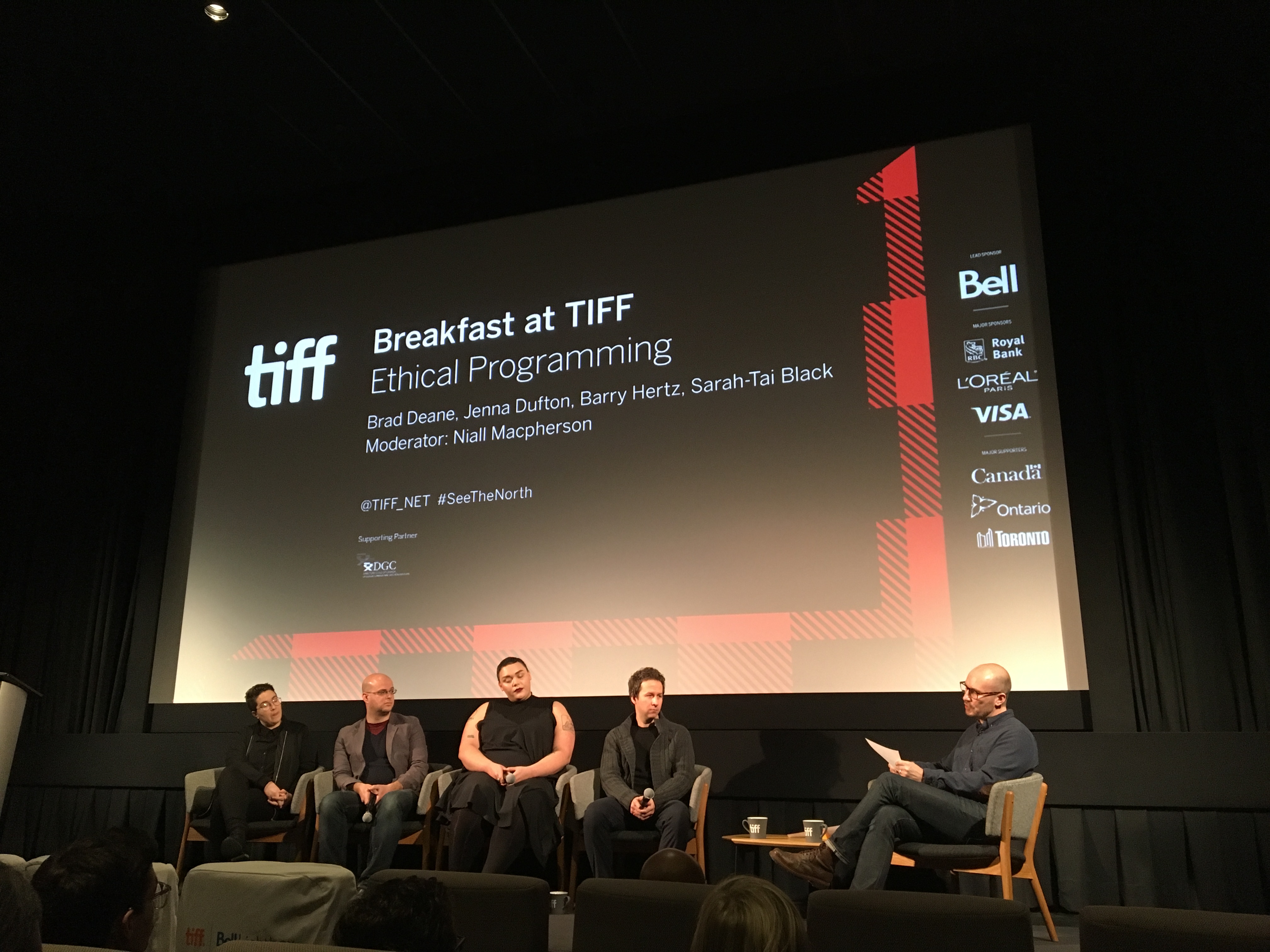The role of film programmers in a post-Weinstein world

Canada's Top Ten Film Festival Industry summit got underway with a panel examining how programmers and audiences should treat the work of those facing abuse allegations.
Before kicking off a celebration of the best in Canadian film, TIFF held a one-day industry summit that tackled some of the most pressing issues facing the film biz, including the role of film programmers in confronting sexual abuse and harassment in the film industry.
Canada’s Top 10 Film Festival Industry Summit took place at the TIFF Bell Lightbox in Toronto on Jan 12. The Ethical Programming panel featured Brad Deane, senior manager, TIFF Cinematheque; Jenna Dufton, programming manager, Inside Out LGBTQ Festival; Sarah-Tai Black, film programmer, Black Gold; as well as Globe and Mail film editor Barry Hertz.
The discussion got underway with moderator Niall Macpherson asking panelists what kind of responsibility they felt when choosing which films to program, especially in light of the continued wave of sexual harassment and abuse allegations that have emerged since the industry was rocked by allegations against Harvey Weinstein.
“I think we have a huge responsibility to the audience,” said Dufton. “So much of where people get their ideas from is what they’re seeing in media and culture. As programmers we’re the front line people who are putting that work out there.”
Part of this responsibility is not just to the audience, continued Dufton, but to other filmmakers that are not getting their fair share of the spotlight. “There are other people who need that opportunity and that representation more than [outed filmmakers],” continued Dufton.
Black agreed: “It’s necessary that we don’t [separate the artist from the work that they create]. At this point we’re better than that. When people give critical cover to predators, it really makes me wonder why we’re essentially saying that great art is worth the suffering of others.”
However, while panelists concurred that the previous work of outed abusers should not be supported with future screenings, they also said it was important not to shy away from confronting such films head-on and examining them through a critical lens. “It’s necessary to examine those works of art in the context of the person or people that create them. So you don’t want to flush away the art and pretend it doesn’t exist – but instead use that, and use the artists background and history and maybe the torment that they put people through, to examine what was actually produced,” said Hertz.
It is also not simply a case of discarding films that have certain names attached to them. Dufton said she had shown the film Carol at a Christmas event for Inside Out, while Black said she had done the same with Jackie Brown – both films were released by The Weinstein Company. “This isn’t me making a case for separating the art from the artist, but rather valuing the contributions of other people who have worked on this film,” said Black.
And as to what the discussion will look like 12 months from now – that is down to the media, programmers, industry and the audience, said Deane. “It’ll all be a matter of keeping up the dialogue – keeping up the conversation and making sure we don’t forget. Once the allegations die down and we get to a steady ground – what’s the way forward?”
Canada’s Top 10 Film Festival continues until Jan. 21 at the TIFF Bell Lightbox in Toronto.

 The definitive CDN broadcast and production resource.
The definitive CDN broadcast and production resource.










